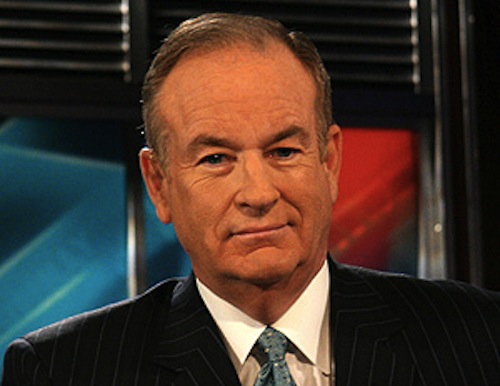We’re coming to this a little late, but Bill O’Reilly has completed the synthesis of Christianity and arch-conservatism that has been vaguely coalescing for the last sixty years—and just in time for Christmas! Ten days ago, he published a column entitled Keep Christ In Unemployment, which is a somewhat misleading title given that it’s A) anti-unemployment benefits and B) as near as I can tell, from a strictly exegetical perspective, anti-Christ. Bill O’Reilly is one hard son of a bitch. As a devout and public Christian, he is apparently obliged to argue that Jesus was one hard sumbitch, too.
All of this started with a remark by congressman Jim McDermott (D–WA,) who found it sadly ironic that half our legislative branch had opted to make its stand against unemployment benefits during the holidays. Quoth McDermott:
This is Christmastime. We talk about Good Samaritans, the poor, the little baby Jesus in the cradle and all this stuff. And then we say to the unemployed we won’t give you a check to feed your family. That’s simply wrong.
He makes a good point, although his grasp of the chronological arrangement of the Good Samaritan, baby-era Jesus and “the poor” is a little shaky. Never mind the details, though: the takeaway is that unemployed people are poor, and Christmas is Jesus’ birthday, and Jesus was all about poor people—in many cases going so far as to be one himself. But was that really his central message?
O’Reilly says no. He’s not tremendously specific about what Christ’s central message was, but he’s certain that it bears on two questions. “What does a moral society owe to the have-nots?” O’Reilly asks. “How much public money should go to those in financial trouble?” These are serious questions that require a lot of thought, in part because they cut to the center of our cultural and governing philosophy as a liberal democracy. The balance between individual liberty and collective responsibility is—oh, sorry Bill O’Reilly, you’ve answered them already? Go ahead, then:
There comes a time when compassion can cause disaster. If you open your home to scores of homeless folks, you will not have a home for long. There is a capacity problem for every noble intent.
There comes a time, and that time is Christmas. O’Reilly’s position is that even Jesus knew when enough is enough, and in this case enough is when continued aid for the unemployed combines with a $700 billion tax cut for the rich to create budget deficits that threaten “personal assets.” Even Jesus knew that the least among us are on their own once debt-influenced currency values start to eat into liquid assets. If it isn’t right there in the Sermon On the Mount, it’s implied.
O’Reilly winds up with that old saw: “The Lord helps those who helps themselves.” Here I must object in the interest of strict scriptural accuracy. If I may paraphrase Martin Luther, that shit is not in the Bible. Who knows what the Old Testament, pillar-of-fire Lord does, but the Jesus lord of Christ-mass is all about helping people who do not help themselves. That’s why he lived like a damn hippie with twelve dudes who ate grasshoppers in the desert, occasionally visited by his hooker girlfriend.
Who knows whether that Jesus was ever real or not. Regardless, he’s a far cry from the fiscally conservative, trickle-down Christianity of today. There’s no denying that the religion of Bill O’Reilly is legitimate and powerful. I submit that there is also no denying that it has abandoned the radical charity and anti-material egalitarianism of the man for whom it is named. O’Reilly’s Christianity is as much about politics and economics as about morality and compassion. In that sense, it seems tremendously appropriate to Christmas after all.





Hear, hear.
Great takedown!
In a similar vein, I went to an Episcopal church this morning, and during the homily the guest preacher mentioned how much more evident people’s faith is the further you drive out of the city, e.g., signs and lights that spell out “In God We Trust.” Two things came to mind – 1. What the heck does “In God We Trust” have to do with the first Sunday after Christmas? and, 2. “In God We Trust” is an entirely political statement and probably indicates a household of Christians who love guns and their property more than anything Christ loved.
Zing!